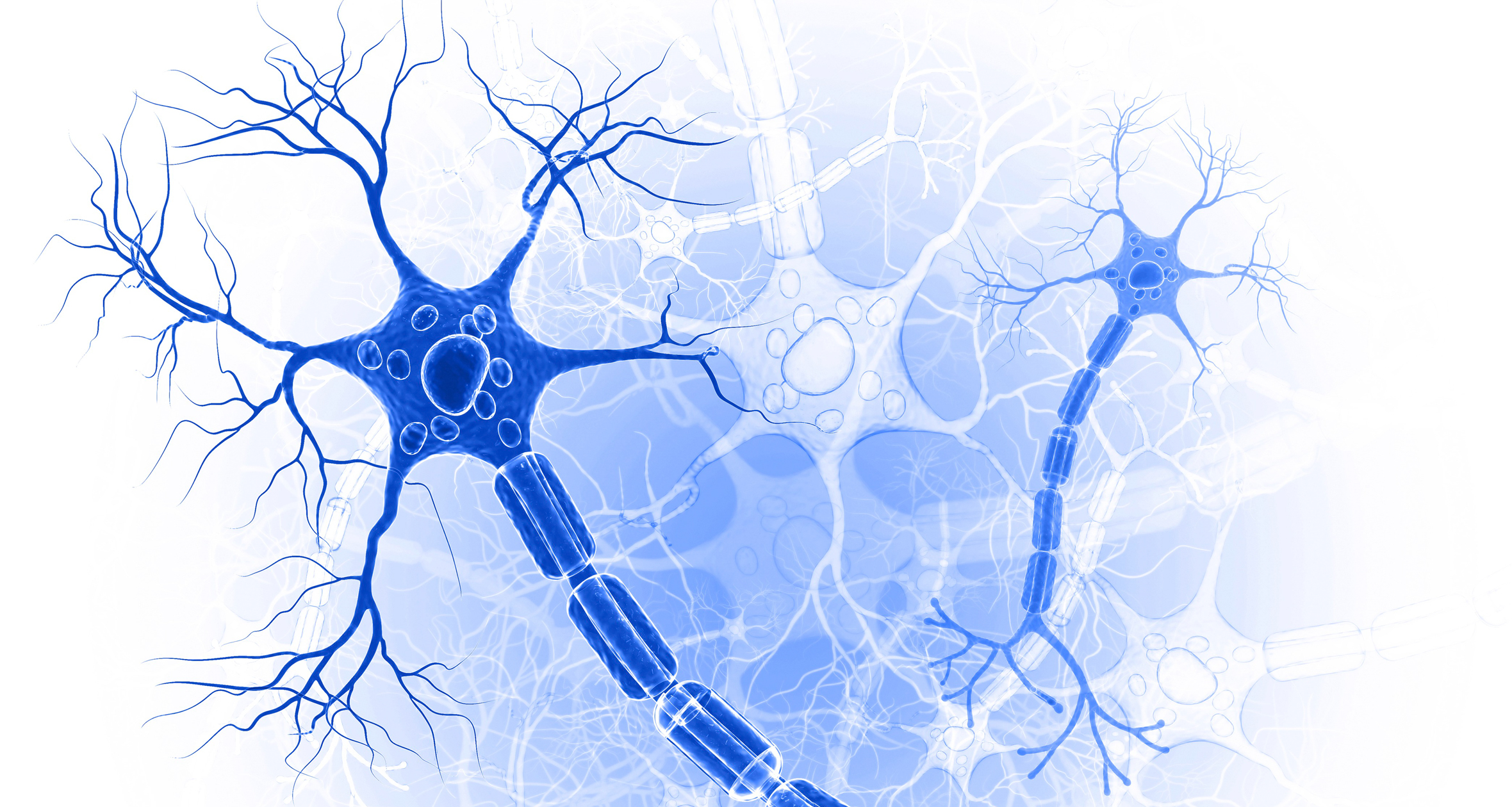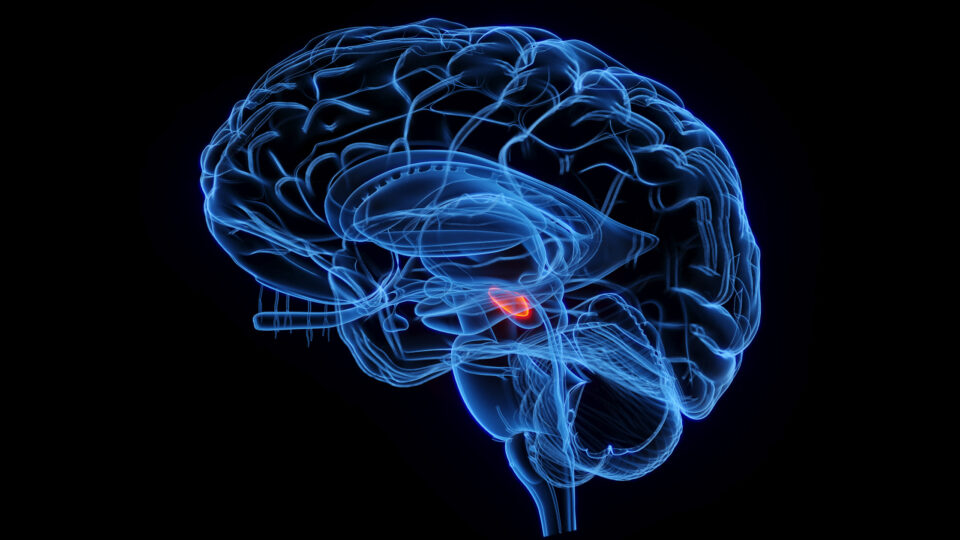Major depressive disorder affects an estimated 21 million adults in the United States every year. While the highly complex mental condition is influenced by the integration of multiple genetic, epigenetic, metabolic, and environmental factors, one thing is clear: stress in early life can play a critical role in triggering the disorder.
Here, Carla Nasca, PhD, assistant professor of psychiatry and of neuroscience and physiology at NYU Langone Health, discusses her work on mitochondrial mechanisms of epigenetic function for the regulation of brain plasticity in response to stress. The research, she believes, may have identified a new biological marker for depression and, potentially, a much-needed new precision-medicine strategy
Physician Focus: How does stress change the brain on a structural and molecular level?
Dr. Nasca: We know from decades of work that stress can lead to imbalances in neural structures—some serving cognition, decision-making, anxiety, and mood. These alterations to the neural structures are usually adaptive responses, but in some people they lead to psychiatric and neurodegenerative disorders, and they need to be treated. The imbalances, in turn, affect systemic physiology via neural, immunological, and metabolic mediators.
In the lab, we discovered a metabolic mediator of this response to stress known as LAC, or acetyl-L-carnitine. LAC is a mitochondrial metabolite, which is best known for its role in fatty acid oxidation. Our lab and work from other groups has shown that LAC also serves as a metabolite that regulates epigenetic function.
Physician Focus: Why is epigenetic regulation so important?
Dr. Nasca: Think of a book. To read the words inside, we need to open the book. Similarly, epigenetic regulation acts as the key that unlocks chromatin structure, allowing DNA to be read and genes to be expressed.
“Mitochondria produce a substantial proportion of the cell’s substrate for epigenetic regulation.”
Carla Nasca, PhD
Our group and others have shown that mitochondria produce a substantial proportion of the cell’s substrate for epigenetic regulation. This means that there’s integration between the mitochondria and nuclei of a cell to allow epigenetic regulation and the expression of genes that are important for synaptic plasticity.
Physician Focus: What effect does LAC have in rodent models of stress?
Dr. Nasca: We find that administration of LAC in rodents leads to adaptive responses to stress. When we boost certain mitochondrial pathways in rodent models, we boost the ability of cells to produce LAC, and we see a corresponding change in epigenetic regulation that ameliorates the response to stress. When the pathway is suppressed and cells produce less LAC, there are maladaptive responses to stress.
In animals, we can observe these changes at the level of dendrites, key structures of neurons that allow for cell-to-cell communication. We find that in rodent models of chronic, prolonged stress, dendrites in the hippocampus as well as other areas of the brain are shorter as compared to mice that did not experience stress. We can ameliorate these changes in dendritic plasticity, what we call structural plasticity, by administering LAC.

In our rodent models of chronic stress, we also observe that the animals start with lower levels of LAC than control mice. When we administer LAC to fill this gap, they showed a rapid antidepressant response, which takes only 3 days to occur, versus other drugs that require 14 days to show an antidepressant response.
Physician Focus: How might your results inform clinical practice?
Dr. Nasca: We’ve started translating these findings to humans and are seeing similar relationships between LAC levels, stress, and depression as to what we’ve observed in rodents.
In many of our papers and unpublished work, we find that childhood trauma, in the form of emotional neglect and emotional abuse, is linked to aberrant mitochondrial metabolism. Indeed, people with major depressive disorder who also report the highest levels of childhood trauma—life stress events in childhood—have the lowest levels of LAC. Their levels are much lower than in control subjects.
“People with major depressive disorder who also report the highest levels of childhood trauma have the lowest levels of LAC.”
Another important finding is that these same individuals with the lowest levels of LAC had a diagnosis of treatment-resistant depression. This was important to us because it suggested that LAC could be an effective antidepressant by itself and also when co-administered with other drugs to potentially give patients the capacity to respond to other antidepressant medications. But we need to conduct additional studies in humans to better understand the molecular mechanisms of this signaling pathway before patients take any LAC.
We replicated our initial finding, that antidepressant nonresponders had the lowest LAC levels, in two cohorts. Now there are multiple papers from other investigators showing the deficiency of LAC as a potential biomarker for depression.
Physician Focus: So, you’re moving toward a potential clinical trial?
Dr. Nasca: Yes, absolutely. The direction we’re moving toward is precision medicine. We want to define and characterize the phenotype of treatment-resistant depression genetically, epigenetically, and metabolically, and look to see if patients respond to LAC alone or as a supplementation strategy.
Physician Focus: Depression is such a complex phenomenon; can you speak to the need to integrate multiple factors to better understand how patients vary in their response to antidepressants?
Dr. Nasca: That’s the spirit of precision medicine. The integration of multiple biological pathways can be an opportunity for us to better define and better characterize the various ways in which major depressive disorder can present.
It will not be LAC alone that cures depression. But if we can identify additional biological factors beyond LAC that are involved in this signaling from mitochondria to cell nuclei and in the regulation of genes important for brain plasticity, we can characterize those people who will benefit from targeted treatments.
To hear more about Dr. Nasca’s research on biomarkers for depression, check out this episode of Insights on Psychiatry, a podcast from NYU Langone.






